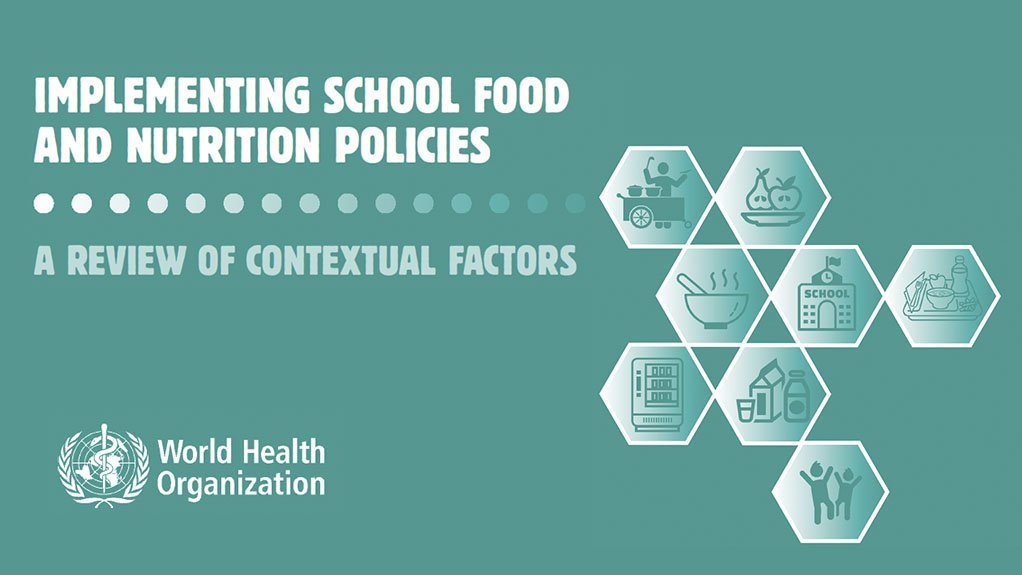- Implementing school food and nutrition policies: a review of contextual factors0.79 MB
Schools play an important role in promoting healthy diets and good nutrition and can create an enabling environment for children. However, the school food environment is often not conducive to a healthy diet. To address this challenge, and to support Member States in implementing policy measures, as recommended by the Framework for Action from the 2014 Second International Conference on Nutrition, the World Health Organization (WHO) is in the process of developing evidence-informed policy guidelines on the food environment, including school food and nutrition interventions and policies with a focus on five interventions and policies that influence the school food environment. These five include nutrition standards or rules, direct food provision, marketing restrictions, nudging interventions and pricing policies.
This review on contextual factors to be considered in the implementation of school food and nutrition policies was prepared as part of the required process for WHO guideline development. When developing a WHO guideline and its recommendations, explicit consideration must be given to decision criteria (i.e. contextual factors) when moving from the evidence on the impact of interventions to recommendations. The factors considered in this review are values, resource implications, equity and human rights, feasibility and acceptability by stakeholder, as well as socio-cultural and environmental acceptability. A total of 350 publications were included in the review, the majority for acceptability (n = 116) and feasibility (n = 168). Most information was identified for policies on nutrition standards and only a few studies related to pricing policies and marketing restrictions. Resource implications and feasibility varied greatly by context and policy area. Included studies on direct food provision showed returns on investment. Generally, policies were found to reduce inequities. In general, stakeholders supported implementation of school food and nutrition policies, with only limited studies identified that discussed acceptability to industry. Overall, effective implementation of such policies could contribute to achievement of the right to health, a core WHO value.
Report by the World Health Organization
EMAIL THIS ARTICLE SAVE THIS ARTICLE ARTICLE ENQUIRY
To subscribe email subscriptions@creamermedia.co.za or click here
To advertise email advertising@creamermedia.co.za or click here











